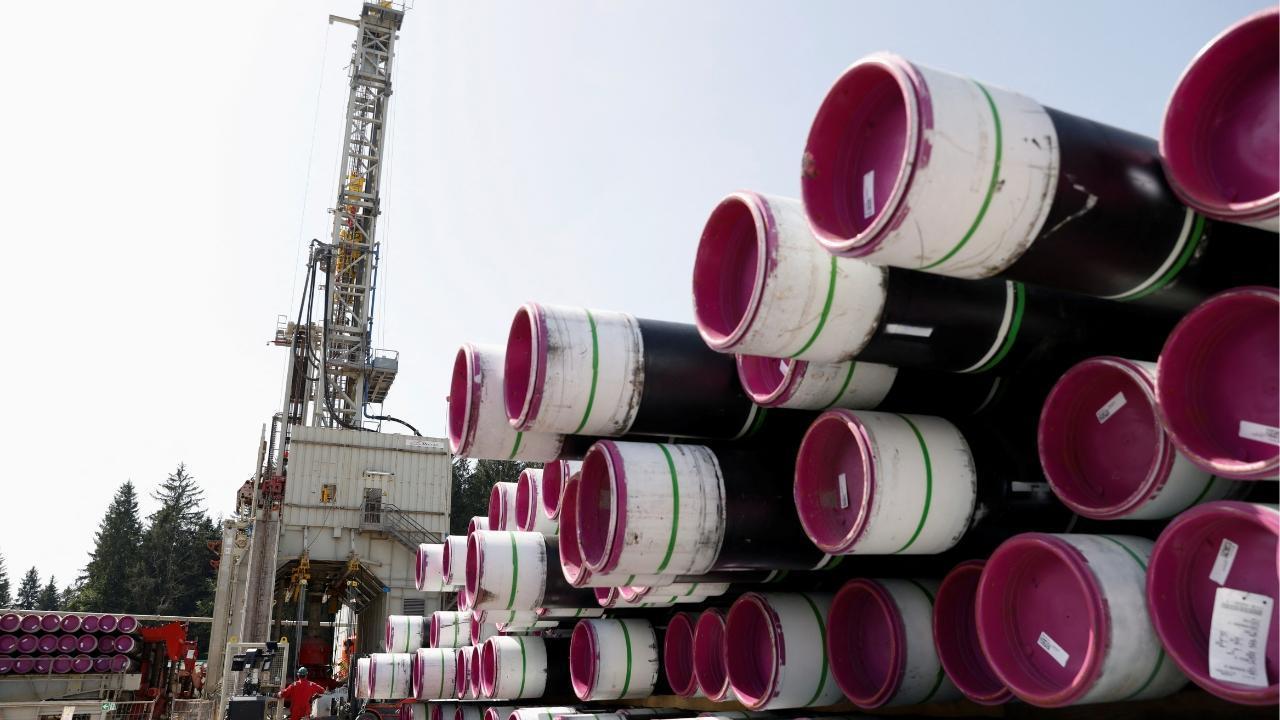
Post by : Monika
Photo: Reuters
Germany is taking a big step to help fight climate change. Its government has agreed to a new law that allows certain industries to capture carbon dioxide (CO₂) and store it deep underground, so it doesn’t go into the air and add to global warming.
This new law is part of Germany’s plan to become climate-neutral by the year 2045. That means the country wants to stop adding more greenhouse gases to the atmosphere than it can take out. The law still needs to pass through parliament, but the federal cabinet has already given it the green light.
What is Carbon Capture and Storage?
Some factories, like those that make cement, steel, or chemicals, release a lot of CO₂ during their production processes. These emissions are very hard to avoid, even if factories use renewable energy.
The new law lets these industries capture the CO₂ before it escapes into the air. Then, using pipelines, the gas will be sent to storage sites deep underground—either on land or under the seabed. There, it will be locked in layers of rock and kept from reaching the atmosphere.
This method is called Carbon Capture and Storage (CCS). In some cases, the CO₂ may also be reused in other industries. That version is called Carbon Capture and Utilisation (CCU).
Why Is Germany Changing Its Rules?
Until now, Germany had strict limits on storing carbon underground. In fact, large-scale carbon storage was not allowed at all. But the country is facing a challenge. It wants to stop releasing greenhouse gases, but some emissions are very difficult to avoid—especially in heavy industries.
The German government says that to meet its 2045 climate goals, the country will need to capture between 34 million and 73 million tons of CO₂ every year. Without a law to allow carbon storage, it would be nearly impossible to reach those numbers.
Where Will the Carbon Be Stored?
The law now allows CO₂ to be stored under the North Sea seabed, far away from cities or towns. This area has enough space underground to hold as much as 8.3 billion tons of CO₂.
Experts believe that up to 20 million tons of CO₂ could be safely stored each year, depending on safety tests and the natural rock conditions under the seabed.
What about land storage?
Storage on land (called onshore storage) is still mostly banned. But each of Germany’s federal states can decide if they want to allow it. This means that if a certain state agrees, companies might be able to store carbon underground there too.
For now, the law only allows research projects on land, but not full commercial operations—unless a state government gives permission.
What Else Does the Law Include?
Coal power plants and other coal-based industries are not allowed to use this carbon storage rule. The government says these facilities should shut down instead of relying on CCS.
Only industries with “hard-to-avoid” emissions, like cement and chemical plants, will benefit from this law.
Will the Government Help Companies?
Is Germany Doing This Alone?
What Happens Next?
Why Does This Matter?
Simple Summary for Students
Why Students Should Understand This
Climate change is a big issue, and solving it takes many tools—not just solar panels and electric cars. This law shows how a country can work with industries to keep pollution down without closing all factories.
By learning how carbon storage works, students can better understand how science, law, and business come together to protect the Earth.










NBA Friday Recap: Powerhouse Wins for Miami, LA, Milwaukee, and Clippers
Miami, LA Lakers, Milwaukee, and Clippers triumphed in a thrilling NBA Friday, showcasing standout p

Doncic Shines with 49 Points in Lakers' 128-110 Victory over Timberwolves
Luka Doncic dazzles with 49 points as the Lakers secure a 128-110 win against the Timberwolves, show

Kings Triumph Over Jazz 105-104 with Last-Minute Sabonis Effort
The Sacramento Kings edged out the Utah Jazz 105-104, with Domantas Sabonis making the decisive shot

Argentina's Friendly Match Against India Delayed, New Date to be Announced
The friendly match between Argentina and India in Kochi has been postponed due to FIFA approval dela

Rohit and Kohli Conclude ODI Journeys in Australia with a Victory
Rohit Sharma and Virat Kohli bid adieu to Australian ODIs with a final win, forming a 168-run partne

George Russell's Wrestling Mask Antics at Mexican Grand Prix
George Russell donned a wrestling mask to enjoy the Mexican Grand Prix from the stands, providing a